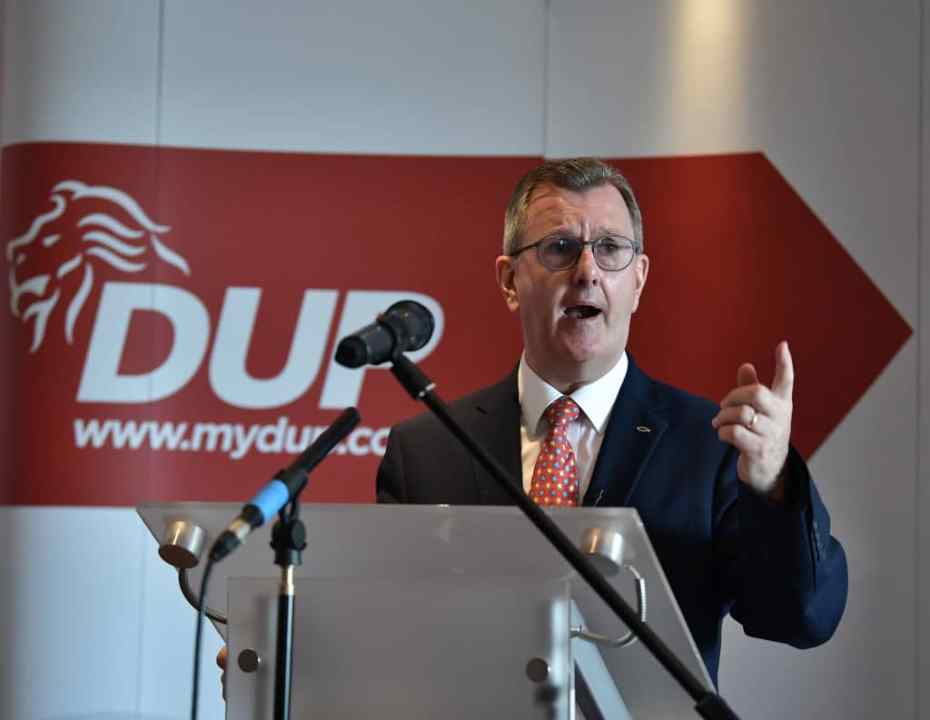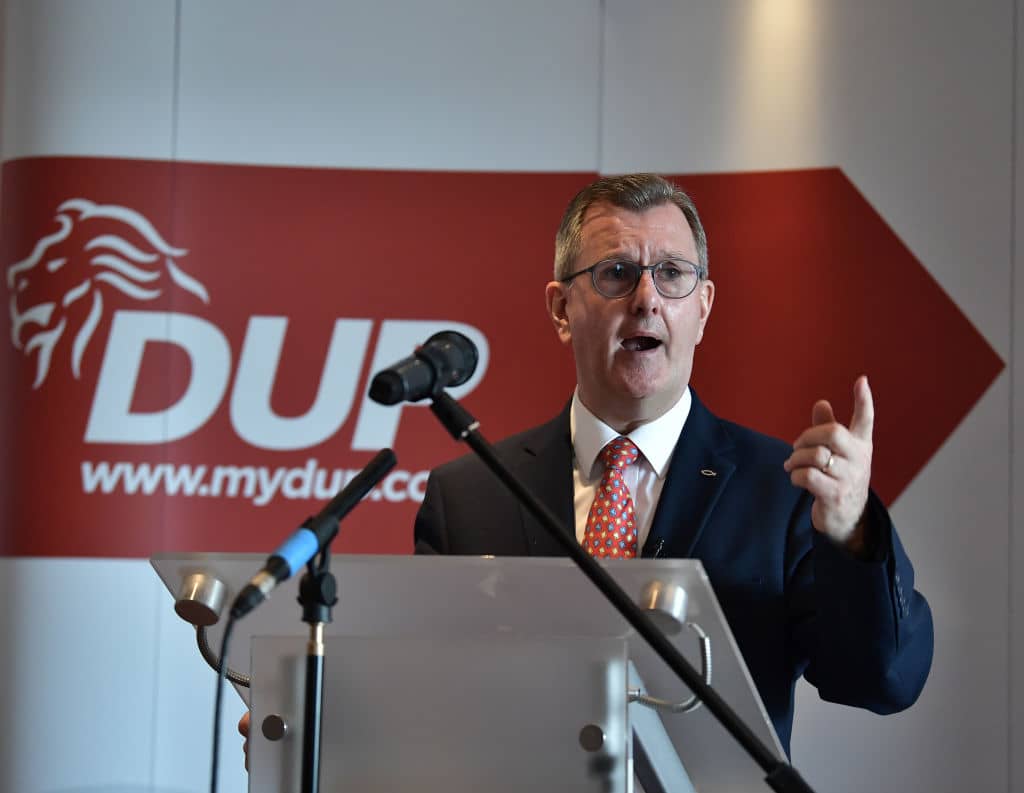Are the Tories serious about getting rid of the troublesome Northern Ireland Protocol? The latest extension to the so-called grace period – the third in recent months – means that plans for post-Brexit checks on some goods entering Northern Ireland have been suspended again. But this isn’t the good news you might think it is for unionists in Northern Ireland.
In the short term, of course, it avoids a repeat of ‘sausage wars’ and megaphone diplomacy around the Protocol’s Article 16 (which allows Britain or the EU to take unilateral action in certain circumstances). This can only be good news. Yet for nervous unionists there is a disturbing lack of security about what might happen when this grace period does eventually come to an end. What’s more, this limbo period does nothing to help those politicians like DUP leader Jeffrey Donaldson who desperately need to reassure voters of what the future holds for Northern Ireland in this post-Brexit era.
But rather than give the DUP security and reassurances they can sell to voters, David Frost and Boris Johnson appear to be condemning unionists and loyalists to the constitutional equivalent of the Hotel California.
David Frost and Boris Johnson appear to be condemning unionists and loyalists to the constitutional equivalent of the Hotel California
Before the summer, the DUP’s former leader and sometime Northern Ireland agriculture minister Edwin Poots spoke of ‘significant movement’ on the Protocol on the part of the Government; instead, as the TUV leader Jim Allister said, this ‘merely delays implementation of further excesses and does not address the fundamental constitutional issue of placing Northern Ireland under foreign jurisdiction, laws and courts’.
So what will Donaldson and the DUP do now? It has been a low-key end to the summer for the party after the trauma of the coups to oust Arlene Foster and Edwin Poots. With the most recent polling suggesting a profound collapse in DUP support ahead of the 2022 Stormont Assembly Elections, some are likely to be keen on the party finally adopting a more robust course of action, such as crashing the Assembly and Executive.
Donaldson seems unlikely to do that, yet the Government’s current approach to the Protocol is leaving him with little room for manoeuvre. The fear among a certain section of unionism is that this endless series of extensions are part of a strategy to browbeat them into submission.
If so, is it working? Ulster Unionist leader Doug Beattie, who is enjoying a surge in the polls, has suggested a series of measures to mitigate the trade pressures facing the Province; these include a specific labelling system for British products entering Northern Ireland, designating its ports as free ports and a ‘cross-border compliance body’.
Published a day after Beattie met with Donaldson and Jim Allister of Traditional Unionist Voice to discuss a unified response to the Protocol, the reaction, predictably, has been one of derision and cries of treachery. The proposed cross-border element, in particular, has sparked anger, with the DUP’s Sammy Wilson stating Beattie’s proposals are ‘more focused on getting a solution which suits Dublin rather than suits the Union’.
Wilson has a point. But perhaps he is missing what the UUP has picked up on: it seems highly unlikely that the Protocol will be gone before the Assembly elections next year. The DUP’s failure to realise this means, for now, that the UUP are reaping the benefits: the party is seemingly taking support off the Alliance party, Ulster’s purported political middle ground. Based on their moves of recent days, the UUP have reached the conclusion that pragmatism rather than protest may pay off in the long run.
After a summer which some predicted would be wrecked by disturbances passed off comparatively peacefully, political unionism enters autumn evidently divided on where to go next and how to do it. This set of circumstances may suit some in Westminster and Whitehall, content in the knowledge that, once again, after a lot of thunder and noise, yet another unionist campaign is starting to run out of steam. But in the long term, the Tories are still doing little to help out their old allies, the DUP.







Comments